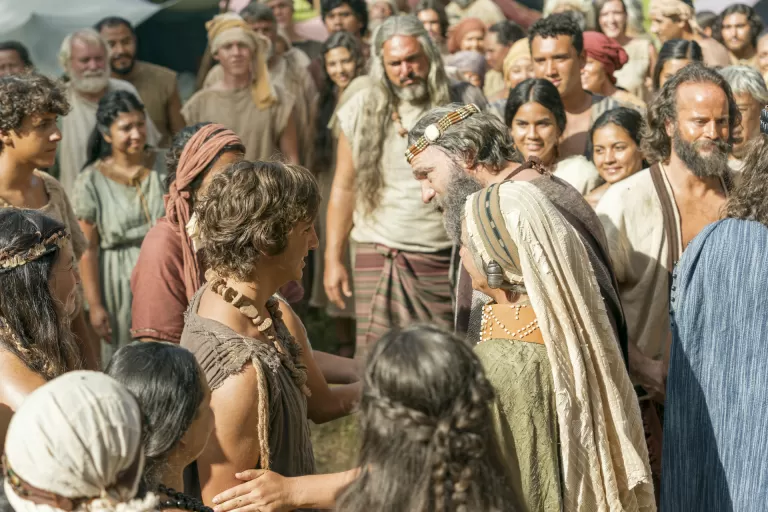
They were the great warrior kings of the Nephites. If all rulers had been and ever would be like unto them, the very powers of hell that hold nations captive would be shaken forever.
Sometime around 150 BC, Mosiah, the latest in a long line of Nephite kings, was warned of the Lord to leave the land of Nephi. It had been prophesied that if the Nephites did not repent, the Lamanites would possess their land, and now under Mosiah, that usurpation was imminent. The Lamanites were about to overrun the land of Nephi. Thus, Mosiah fled out of the land taking with him “as many as would hearken unto the voice of the Lord…and they departed out of the land into the wilderness”
(Omni 1:12-13).
King Mosiah and his people discovered the people of Zarahemla, and they united together under the rule of Mosiah who wielded the Sword of Laban in their defense, and the Brass Plates for their edification and peace. And little else is known of Mosiah I. Our record of his reign and ministry went with Martin Harris into oblivion in June 1828.
King Mosiah was succeeded by Benjamin, his son. In his days, there was much of contention among his own people, as well as war with the Lamanites. Benjamin gathered his armies and with the Sword of Laban in hand led them into battle himself. “And in the strength of Lord they did contend against the Lamanites until they had driven them out of all the lands of their inheritance”
(Words of Mormon 1:14).
Once Benjamin had removed the enemy from without, Benjamin turned on the enemy within, false Christs, false prophets and teachers, until finally the evil had been eradicated from among his people. Benjamin was a holy man who reigned over his people in righteousness and labored “with all the might of his body and the faculty of his whole soul” until he established blessed peace among his people.
He was a servant king who labored to support himself, rather than enrich himself at their labor. He fought the addicting and enslaving elements that inevitably encroach upon civil society and destroy their freedom. He shamelessly taught his people to keep the commandments of God and refused to burden his people with himself, with taxes, or with the heavy hand of government.
As he came to the end of his reign, he stood before his people with a clear conscience, knowing that he had served them in the love of Christ all his days. They were his friends and brethren, and when he invited them to come unto Christ and enter into a covenant to serve Him to serve Him, they came, all of them.
Oh, for such wise leaders, who lead to serve in love, for they will never be forgotten by God or their people. Is it still possible for a nation to be led by holy men?
Story Credits
Glenn Rawson – April 2016
Music: “Life Path” (edited) - Free Music Track
Song: “Press Forward” – Wayne Burton
Sources:
- Omni
- Words of Mormon
- Mosiah 1-6

